Sola Gratia Farm
Hidden on the far eastern edge of Urbana, at the end of a small cluster of tidy homes, is the entrance to Sola Gratia Farm, one of Champaign-Urbana’s most valuable community resources. The mission of this small organic farm, founded in 2012 by St. Matthew Lutheran Church, is “to make healthy food accessible for all by nurturing productive land and cultivating diverse, inclusive communities.” And in the years since its inception, it has done just that.
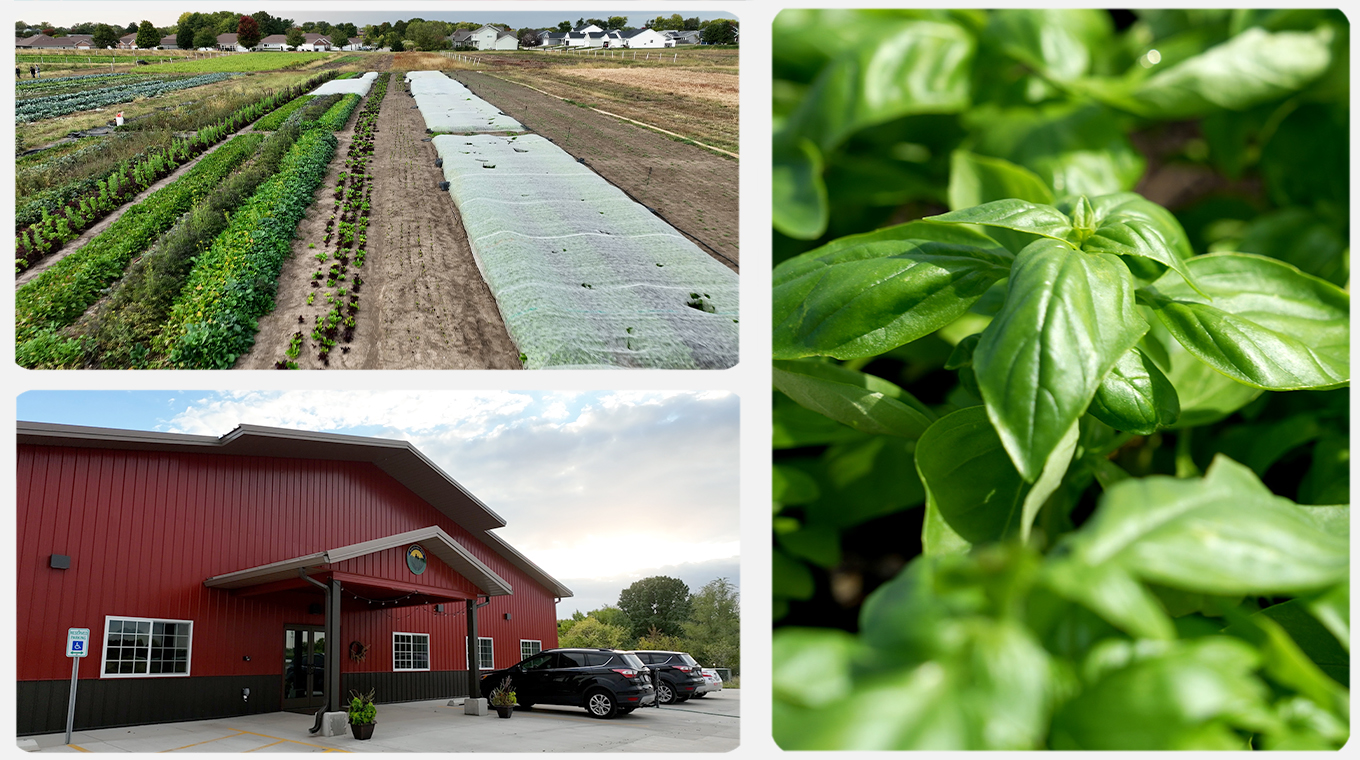
The farm grows a wide variety of produce designed for fast turnaround from farm to plate. Think carrots, greens, squash, tomatoes, potatoes, herbs and many less mainstream varieties. Sola donates 20 to 30 percent of its harvests (and harvest is year-round) to food access organizations like the Eastern Illinois Food Bank, Daily Bread Soup Kitchen and Jubilee Café at the Community United Church of Christ. Staff and volunteers also sell produce at local farmers’ markets.
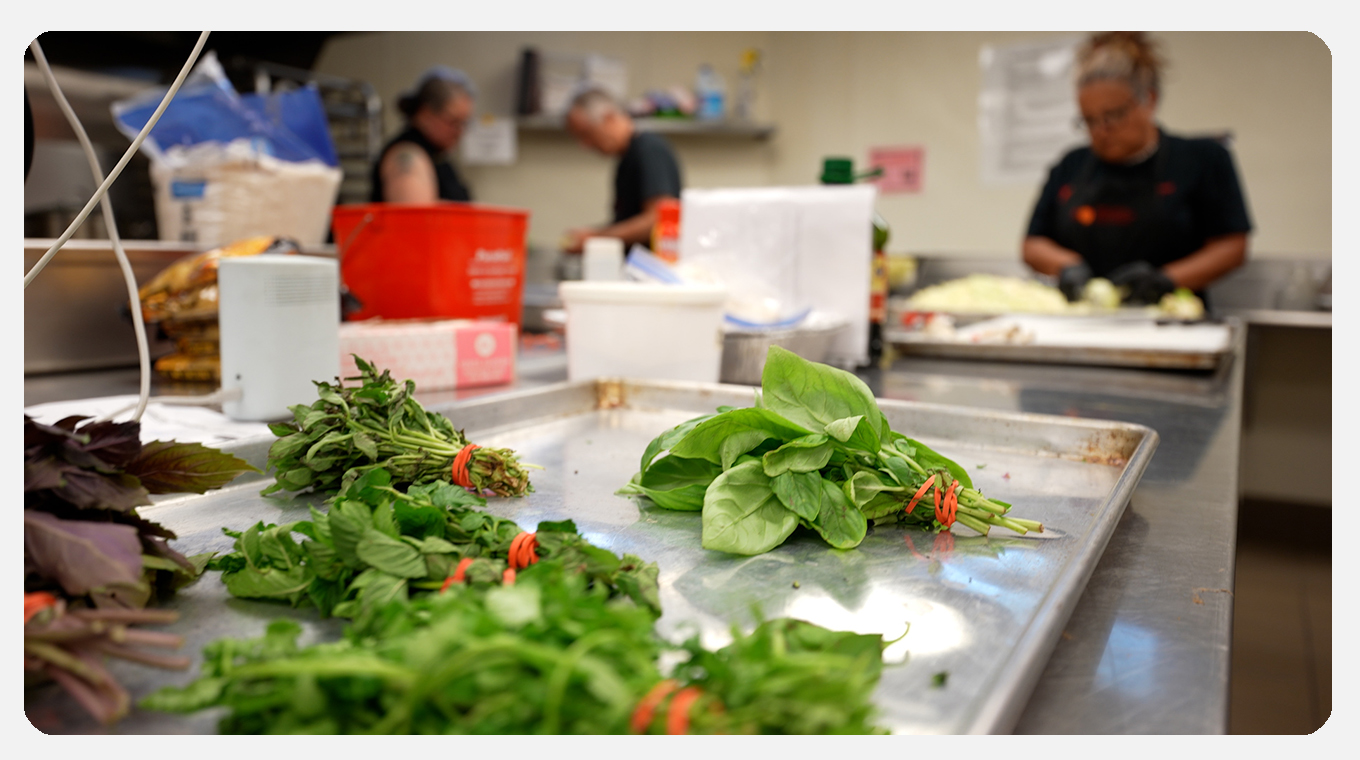
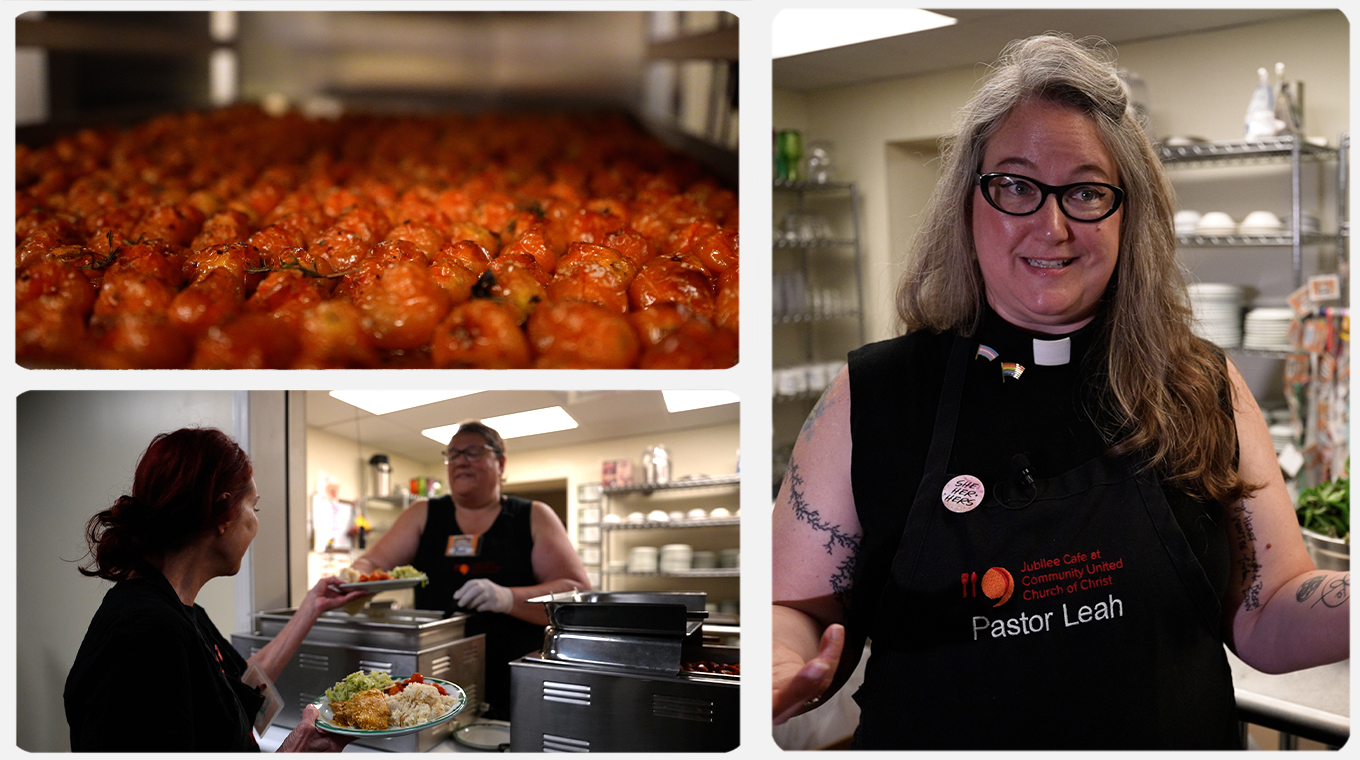
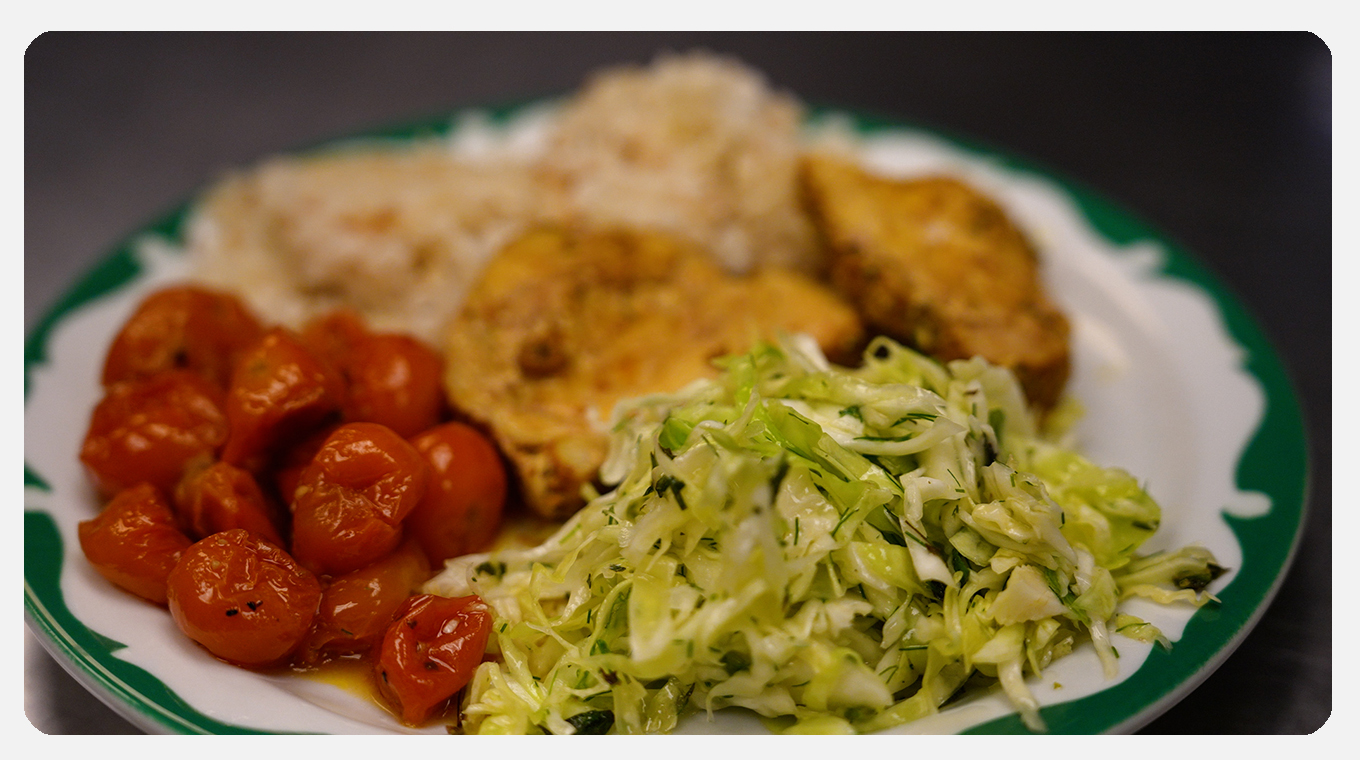
Community supported agriculture is another pillar of Sola Gratia’s success. Community members can sign up every year as investors in the farm and reap the harvest as it comes in from the field. These CSA distributions are subject entirely to what’s fresh, so members usually have no idea what will be available on any given week. Farm manager John Williams says he loves expanding the palates of members by providing produce they’d never normally eat.
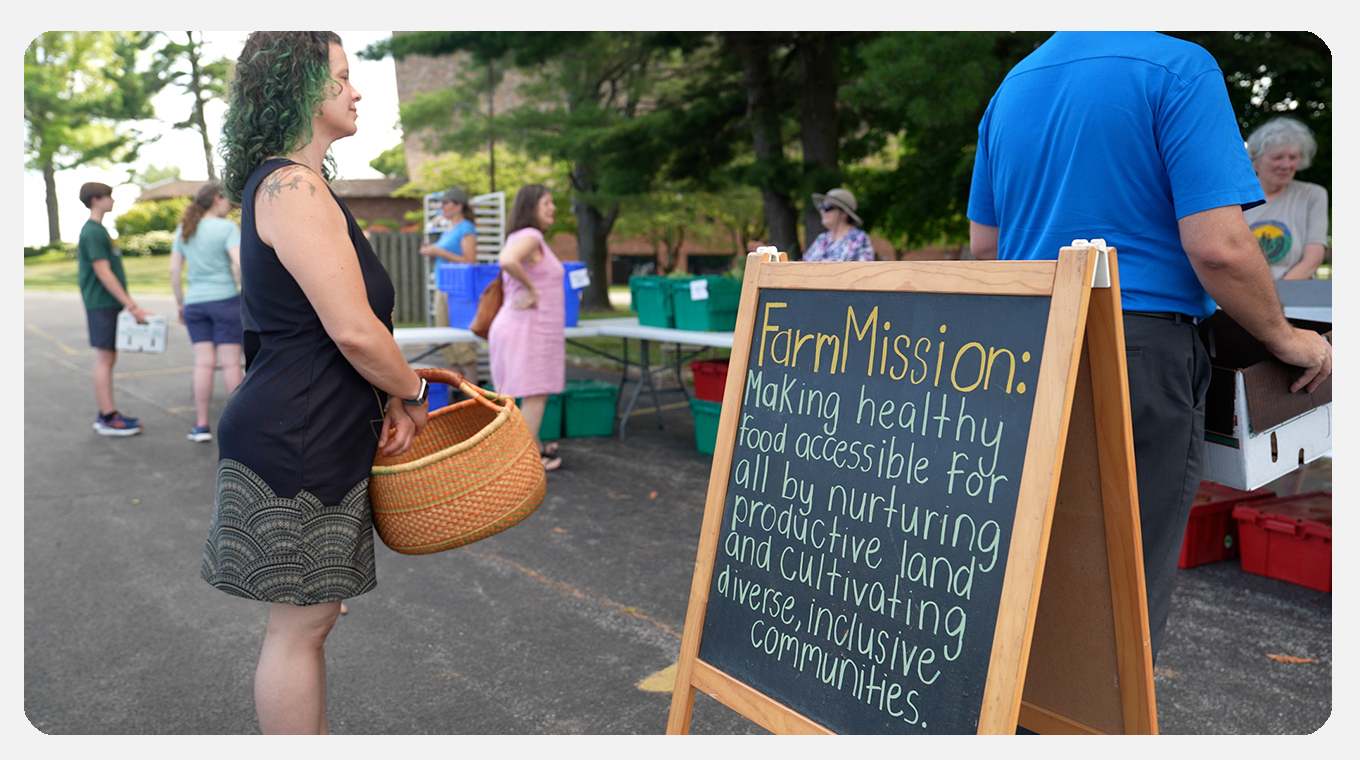
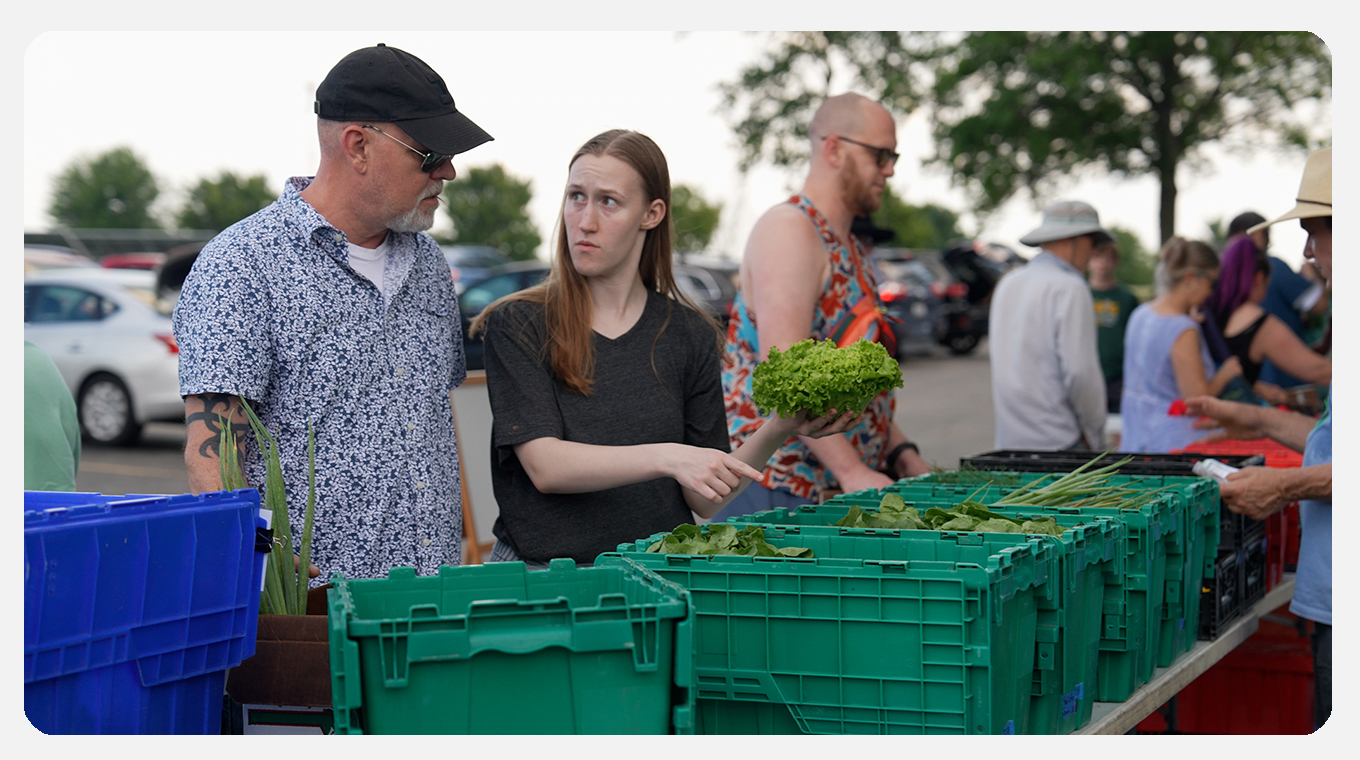
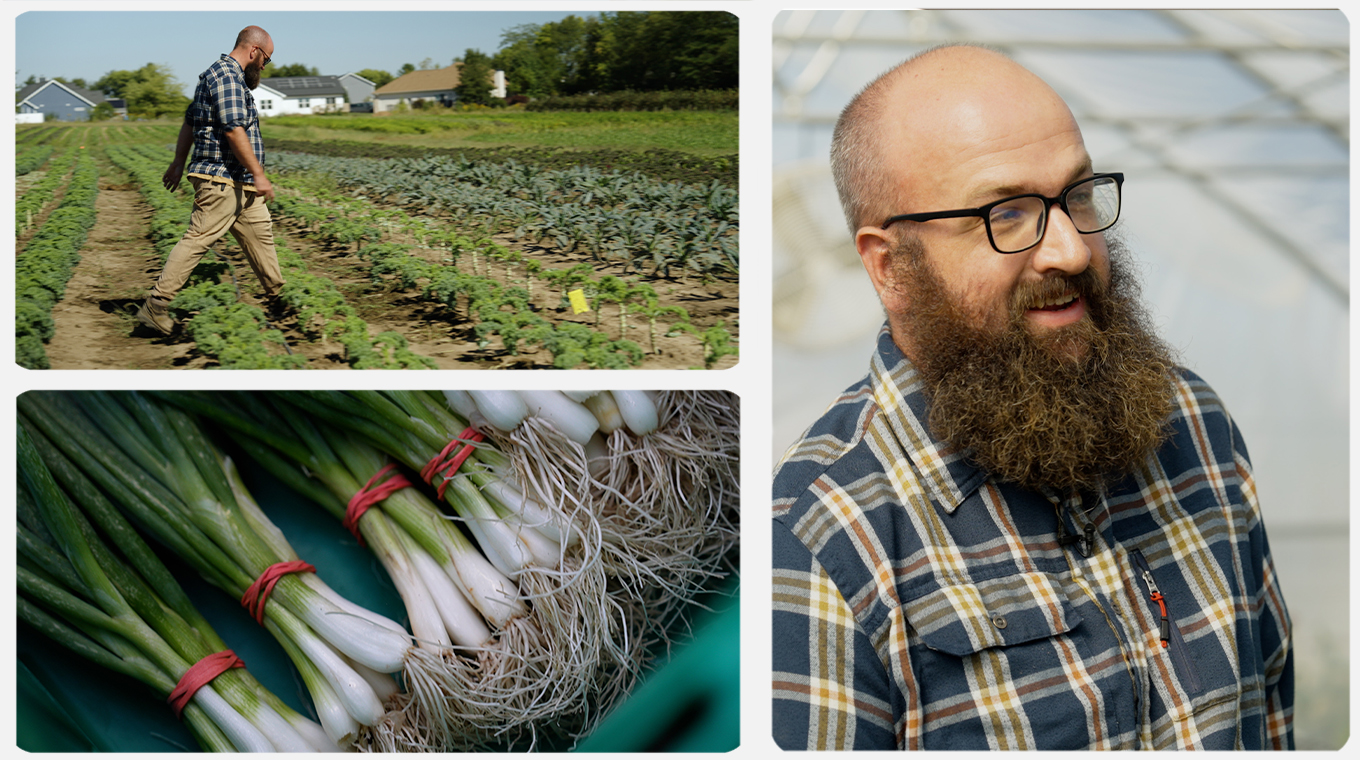
“What keeps me going is when I see a kid at market who’s super excited about that purple kohlrabi or they say, ‘I really loved the okra,’” Williams says.
Sola Gratia Director Traci Barkley has seen the farm expand from four acres to about 29 acres. The organization has also added a wash-pack facility and a building to house administrative offices. The idea was to expand both production and education outreach. Sola offers community classes and hosts school kids in an effort to highlight the value of growing and eating fresh in a highly processed world of food. “Generationally, we’ve lost a lot, and I feel like there’s an opportunity to get that back,” says Barkley.
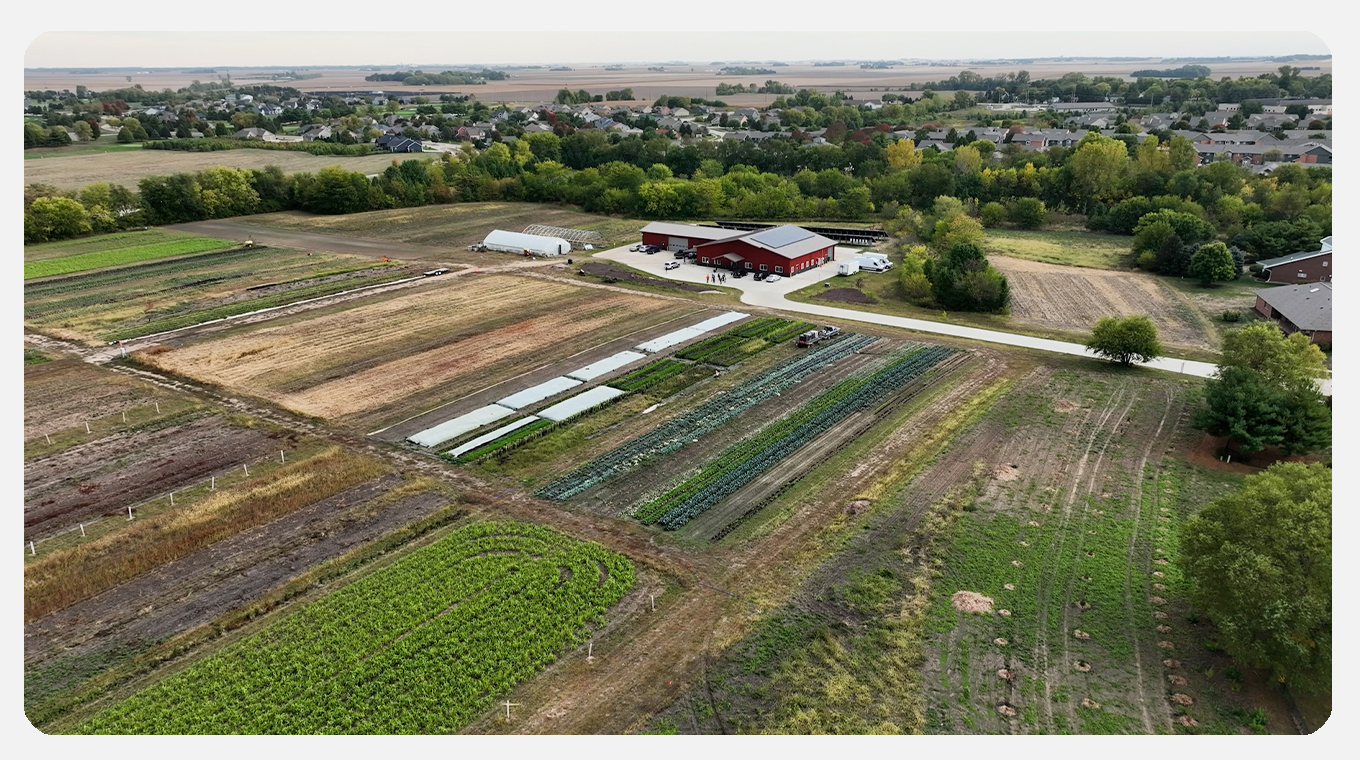
In 2025, Sola has planted 472 trees to create what they call an “edible windbreak.” The trees will produce fruits and nuts and also protect the trees from airborne pesticides, diversify crops and provide shade. Barkley says she’s optimistic that Sola will continue to expand its operations because of the diversity and generosity of the Champaign-Urbana community.
“We are so fortunate to live in an intellectually, culturally and spiritually rich community where so many people feel like ‘we’re all in this together,’” Barkley says.


